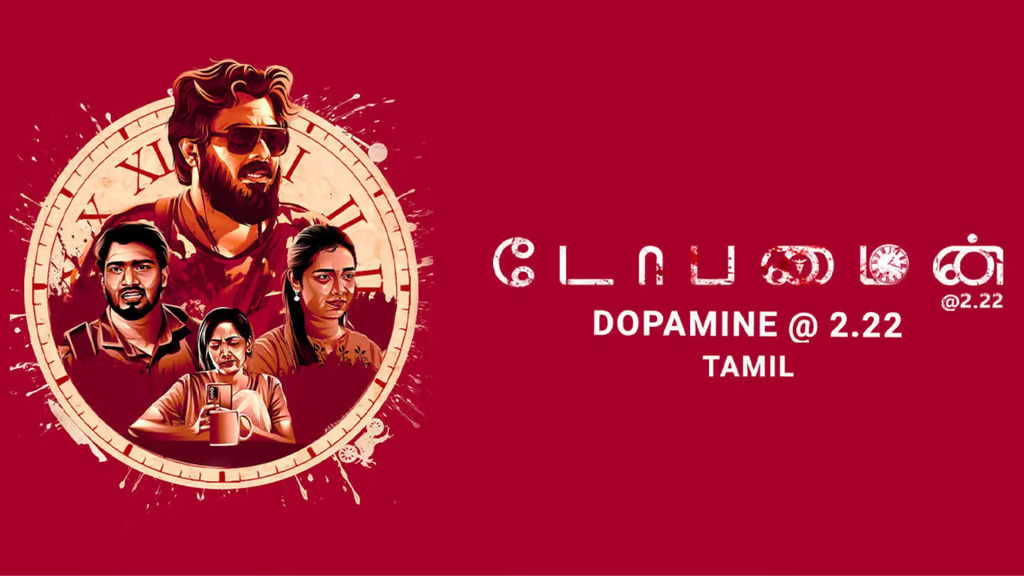Dopamine @2.22 Movie Review: A thriller that is used mainly to deliver messages
There are some ideas with great potential, but the film is more interested in delivering social commentary.
There’s no doubt about the fact that film is an impactful medium that can be used to educate, provoke, and introspect. For instance, large-scale awareness about terms like multiple personality disorder and short-term memory loss can be attributed to some extent to Anniyan and Ghajini. The realisation that C-sections were not all that common in the past as they are now can easily strike someone watching Mersal. But the important question remains: how to read films that convey very important social messages but lack in other departments?
If you’re someone who feels films that deliver lessons are good films, then Dhirav’s Dopamine @2.22 is probably your cup of tea. The film speaks about the impact that dopamine-seeking, particularly through smartphone usage, has on the mental state of humans today. There’s preaching in all forms you can think of. Dialogue-based preaching? Check. Visual preaching? Check. Voiceover preaching? Check twice: there is preaching through narration, and there is preaching through a radio. Why, even the background music preaches us that Madhusudhanan (played by the director himself) is doing something wrong when he is scamming his friends.
And the social messaging in Dopamine @2.22 isn’t restricted to talking about just one form of smartphone content consumption. We’re shown the harmful effects of online rummy, pornography, influencer craze, and addictive gaming. Within a short runtime of just 91 minutes, it’s very hard to convey so many things, especially when you have a murder mystery thriller with multiple characters running in the background.
And that is the biggest issue with Dopamine @2.22—the thriller portions have some truly interesting ideas, but it seems to be the film’s lesser priority. There are intercut scenes between the numerous threads, and some of them last for mere seconds. In a film where you are not invested in the characters, this can be jarring. But here, it actually lends a sense of anticipation and continuity. And this is largely because of the characters being people you meet in your everyday life. The performances by Nikhila Sankar, Vibitha Thekkepat, and Sathya are particularly good - it helps that despite small brushes, these characters have some dimension to them. This makes it easy to root for them.
However, these ideas aren’t extrapolated enough to result in a convincing end outcome. There are some rather confusing filmmaking choices at work. Characters going through the same motions are repetitively shown, leading to exhaustion. While some characters are life-sized, others seem to be more like exaggerated ideas to showcase social media addiction. Character reveals with animated effects happen not in their first scene but somewhere down the line, sometimes in scenes that don’t even focus on them. A whole parallel thread about a missing girl is handled lethargically, with an end reveal that seems force-fitted just because it falls under the same theme as the plot. The easy option of Amma sentiment is utilised to hammer down the message. And when will our filmmakers realise that it's better to not have humour than to insert some unfunny lines just for the sake of it? Decisions like these never let the potential in Dopamine @2.22 get exploited. But perhaps the film isn’t interested in that either; it seems happy with being the movie-equivalent of a social studies lecture.


